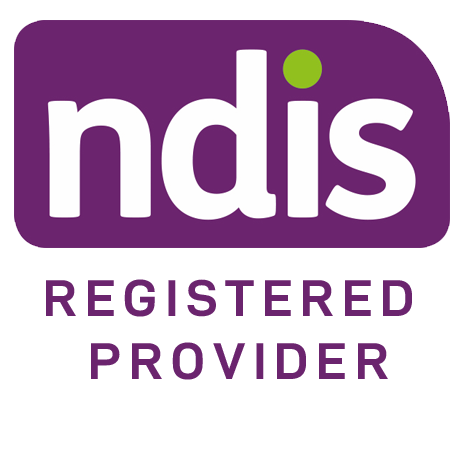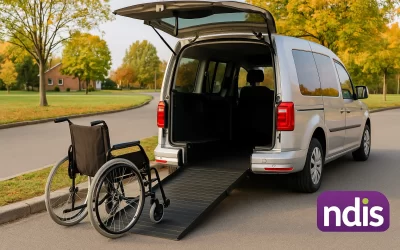1. What is the NDIS?
The National Disability Insurance Scheme is the biggest disability reform in Australia’s history, run by the first Australian National System for people with a disability. This project was legislated in 2013 by the federal government, and its goal is to achieve a total capacity by 2020. This plan is meant for individuals with a permanent or substantial disability before or at age 65.
The public entirely finances the scheme, the community, society, the state, and any other member of the public with the disease. Connect with professional NDIS-registered providers to achieve your goal.
2. What is the National Disability Insurance Scheme (NDIS)?
The National Disability Insurance Scheme (NDIS) is Australia’s mainstream for funding reasonable and appropriate support to encourage children with disabilities, developmental delays, or developmental concerns and adults with disabilities. NDIS funding assists clients and their families in achieving personalised outcomes and empowers consumers to decide on the assistance required to live their preferred lives. Hire reliable NDIS providers near me to learn in detail and know how to gain the scheme’s benefits.
3. What doesn’t the NDIS fund?
Generally, the NDIS doesn’t fund supports that are:
- The private programmes should not be associated with your child’s disability or developmental delay.
- Supported and maintained by such ordinary services as education or health care service.
- Expenditure is incurred on items and services that are not in any way relevant to your child’s well-being.
- To remove it from your home if it is deemed a danger to your child or a potential danger to others.
Your child, too, must be an Australian citizen, Australian permanent resident, or possessor of a protected special category visa to qualify for this kind of support. You can contact professional NDIS service providers to complete the process.
4. How can my child younger than 9 years get support from the NDIS?
Suppose your child is below 9 years of age for having a disability or below 6 years of age for developmental delay or has developmental concerns. They can go for early childhood support under the NDIS scheme for children below 7. The major or primary difference concerning the early childhood NDIS approach is based on the age of the children; that is, those who are less than the age of 6 years are different from those who are more than 6 years of age.
Moreover, your child must also be an Australian citizen, permanent resident, or holder of a Protected Special Category Visa to receive this support.
For more information, please visit the page.
5. What is the NDIA?
The National Disability Insurance Agency (NDIA) is a federal government company whose primary role is to promote the implementation of the NDIS across the country with the intention of enhancing the standard of living of all disabled citizens and their families and carers.
6. How is NDIS working?
In NDIS, there are different stages that afford structural logic to a set plan for each individual based on his/her needs. After knowing what NDIS is, make sure you read through the checklist of eligibility and get the “access letter.” The next step is to develop and implement your NDIS plan and then, at the time of expiration, if needed, review it.
For more information, go through the pdf file at
https://www.ndis.gov.au/media/6411/download?attachment. Visit NDIS near me.
7. Am I eligible?
Eligibility Checklist:
- Are you 7 years old to a 65-year-old man or woman?
- Are you a resident of Australia, and do you currently reside in Australia?
- Is there someone for whom you usually have to require assistance from a person due to a permanent and substantial impairment?
- Are you disabled with a permanent and significant worsening of your condition to the extent that you need special equipment?
- Would you like to get some support now to demand less later?
How can I use my NDIS plan?
The best way to start your NDIS plan is as follows:
- Know your plan.
- Understand the content of your plan:
- How your supports are planned to be paid:
- Your budget There are very strict rules regarding this, and the amount must be drawn from the budget allocated to you by the NDIA.
Note: You decide how you will spend that money.
- Turn on My Place (This should assist you to begin the entire procedure of developing your plan.)
If you are unsure of how to complete or deploy the user or where to place it, there is always someone to consult with if you are known to have a person you can trust.
- To develop your plan, you may also consult with the area coordinators or the support coordinator of that area.
- You can call them, or you can actually schedule a meeting with them on one.
- If you require interpretation services and there is no official in ADEC who understands your language, you should dial 131 450.
9. What is the price guide?
The NDIA has taken the decision on the maximum price for those supports that are to offer value for money for participants. For example,
Publicity costs are an eventual factor of change to reflect new market prices or changes in the costs of the services or products being offered. This change is made once a year according to the previous year’s data, and the modifications are implemented from July 1 of the year.
As the participant will be able to identify with trends prevailing in the market, they will be better placed to see the prices that probably will be charged and factor them in light of the available budget when developing the plan. NDIS funding supports disabled people so they can live peacefully.
10. What is NDIS Transition Support?
Note that this programme seeks to enable and navigate individuals and help them to access the NDIS. The focus of ADEC-NDIS TSS (Metropolitan and Regional Victoria) is to help people with disabilities, their carers, and family members from culturally and linguistically diverse backgrounds to move to NDIS.
For more information, please visit the page https://adec.org.au/disability-support/.
11. Can I change my NDIS provider if I am not satisfied with my current provider?
Yes. If you do not select a service provider and are not happy with it, then you are free to switch to another company of your own will at any moment.
12. How can ADEC help me?
ADEC is a state-wide organisation that assists people with disabilities or frail aged persons, their carers, and families of cultural diverse origin to access required services.
ADEC can provide you with the following:
- Disability Support
Personal Care: Support workers at ADEC who rightly assist their clients with a commonly needed facility, which is personal hygiene care.
- Community Access: ADEC assists our clients to go to their community for purposes of recreation, education, and employment.
- Domestic Support: ADEC offers home domestic services in areas like house cleaning, cooking, shopping, and assisted exercise.
Plan Management (This is a free service)
- Communicating with the service providers
- Creating service bookings
- How to fund claims from the NDIS to pay your service providers
- Treating receipts and paying them on your behalf and
- Giving information regarding changes to the budget
NDIA Reviews and Appeals (This is a complimentary service.)
If you are unhappy with an NDIS decision, we can:
- Offer details on the exercise of certain rights to request a review.
- Assist you in applying for a review (appeal) to the Administrative Appeals Tribunal (AAT).
- Accompany you through the review cycles
- Help you appeal to the AAT by walking you through the process
- Assist you in doing your appeal
13. Is ADEC able to provide me with an NDIS service in another language?
Yes. ADEC has staff from other nationalities, and if you prefer to be served in other languages, ADEC will be happy to oblige. If, by any chance, ADEC does not have an individual who understands your language, do not worry since there is always an interpretation service available to you. This service is free.
14. What if I disagree with the support of my child’s NDIS plan?
If you disagree with the support outlined in your child’s NDIS plan, you can request to reassess the plan.
15. Will my child’s plan be reassessed?
Your child’s NDIS plan will be reviewed often, and the typicality is 12 months as a basic period. Ideally, approximately three months before your child’s plan review date, your early childhood partner, local area coordinator, or an NDIA planner will get in touch with you to discuss how this plan is serving your child’s needs. This is called a check-in, the beginning of the reassessment process.
16. How will my child’s NDIS plan be managed?
Concerning managing your child’s NDIS plan, you can select from the following options: self-management, plan management, and NDIA management. You can go for the option that is right for you.
The NDIS is implemented through the National Disability Insurance Agency—NDIA.



